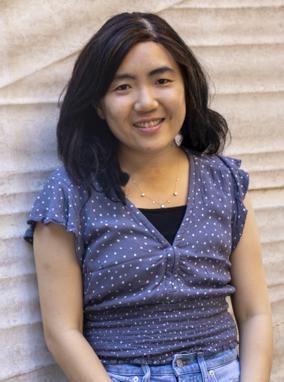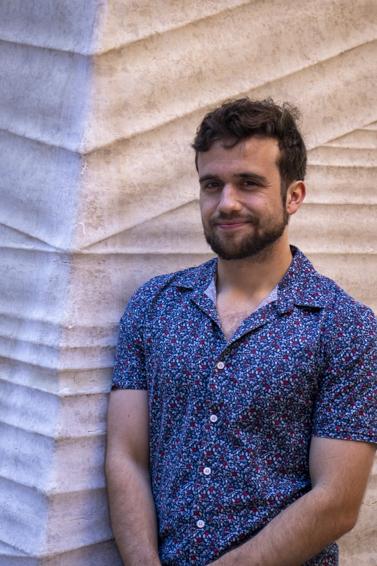MCB PhD Students Julie Huynh and Jacob Cecil Named ARCS Foundation Scholars
Congratulation to two of our MCB PhD students, who were named 2021-22 UA ARCS Foundation Scholars!
ARCS Scholars are selected annually by qualifying departments of science, engineering and medical research within ARCS Foundation's 51 academic partner universities and colleges. ARCS Foundation neither solicits nor accepts applications from potential ARCS Scholars. Our academic partners identify and select ARCS Scholars who meet the following criteria to be eligible for funding:
- be a United States citizen;
- be enrolled in a full-time degree-granting program, majoring in fields of science, engineering or medical research; and
- have a GPA of 3.5 or higher.
The selection process for these scholarships is rigorous! They must first be nominated by the Graduate College review committee who selects no more than 25 nominations to be forwarded to the ARCS Foundation for consideration of an award. The ARCS Foundation Scholarship Committee then selects the winners based on donor specific interests.
 Julie Huynh, Carson Senger Scholar
Julie Huynh, Carson Senger Scholar
- MD/ PhD Student, currently in her 4th Year of her Ph.D. Program in Molecular and Cellular Biology.
- Completed first two years of medical school.
- B.S. and M.S. through Accelerated Master’s Program, University of Arizona, Molecular and Cellular Biology, 2014, University of Arizona
- Current Research Lab: Paek Lab
- Current Research Lab PI: Dr. Andrew Paek
Huynh’s research surrounds the mechanisms of resistance that cancer cells develop to targeted therapies. “My research aims to elucidate mechanisms used by some cancer cells to evade death in response to treatment. I will be specifically studying targeted therapies for EGFR, a receptor that is altered in many cancers, and other protein kinases that are commonly mutated in the EGFR pathway. By defining the molecular basis for cancer cell survival, we can develop more effective treatment strategies.”
Huynh’s career goal is to be a physician-scientist in pediatric hematology/oncology. “I want to run a lab where I develop research questions, using my PhD training and clinical observations from patients in my clinic, on mechanisms of cancer development and treatment resistance. I have seen young, adolescent patients who have developed the soft tissue cancer, Rhabdomyosarcoma in the neck to the bone cancer, Ewing Sarcoma in their big toe and want to understand how these cancers develop to better treat and care for them. Additionally, as important as starting my own research program is to me, I also want to be in positions that give me the opportunity to teach. I will ensure that I will recruit undergraduate students, graduate students and be involved in programs that introduce high school students to research and medicine. As a first-generation college student, I have been extremely fortunate to have amazing mentors and professors help me through my schooling and would not be in the position I am today without them. I want to be a similar figure to all future students I have and be a part of training the next generation of scientists.”
Scholarship make a world of difference to students, and Huynh is no exception. “I am extremely grateful to Mr. and Mrs. Senger and the ARCS Foundation for their support of young scientists. The path to becoming a scientist can be incredibly difficult, with experiments that don’t work, pieces of data that make no sense, and continually having to fight your imposter syndrome when it starts questioning whether you will be able to achieve your career goals (don’t listen, you can!). Thank you to the ARCS foundation for putting their faith in me and many other phenomenal colleagues. I am more determined than ever to discover how I can make EGFR targeted therapies more effective for cancer patients so they can see more of their grandchildren’s’ dance recitals, travel the world and accomplish more goals.”
 Jacob Cecil
Jacob Cecil
- 5th Year Ph.D. Program - Molecular and Cellular Biology
- Current Research Lab: Capaldi Lab
- Current Research Lab PI: Dr. Andrew Capaldi
- B.S from University of Tennessee in Knoxville, TN, 2016
Cecil’s research interest focuses on studying a system called Target of Rapamycin (TOR) pathway, which acts as the central growth regulator for all eukaryotes. “Because almost every energy-consuming process that occurs in the cell is regulated by the TOR pathway, and so it may be unsurprising then that dysregulation of the TOR-pathway underlies many human diseases. TOR is a well-known oncogene, and nearly 80% of human cancers are driven by overactive TOR pathway signaling. As a regulator of glucose metabolism, pathological TOR-signaling is also a key player in obesity and type-2 diabetes. Finally, TOR-signaling must be precisely regulated throughout a healthy lifespan, and significant research has emerged on the role of TOR in neurodevelopment and as a major driver of ageing. Thus, by researching the fundamental components of the TOR-pathway, we can unlock solutions to major public health issues including cancer, diabetes, and even the physiological effects of ageing.”
Cecil’s interest in science was established during his undergraduates studies; "My passion for science took root during my first and second year undergraduate biochemistry courses when I learned about the mechanisms of different signaling pathways and proteins. This same fascination motivates me through the day-in/day-out uncertainties of research. I am interested in fundamental biology and hope that my work can illuminate our understanding of cellular biology. I have developed a appreciation for teaching as well, and strive to place myself in a role where I can be a mentor, as I myself have had fantastic mentors who came before me."
Cecil’s career goal is to become a research scientist in academia studying cell growth regulation by the Target of Rapamycin (TOR) Complex.

